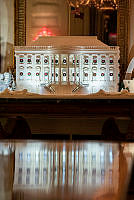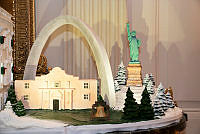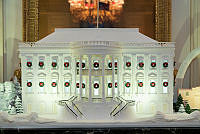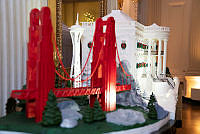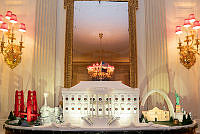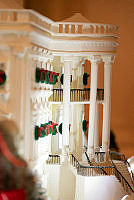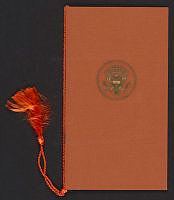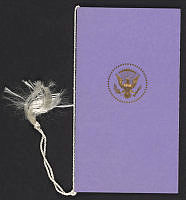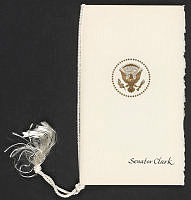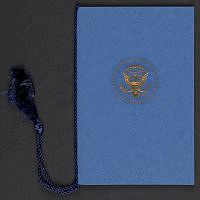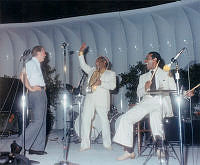New England Convention
Copyright © White House Historical Association. All rights reserved under international copyright conventions. No part of this article may be reproduced or utilized in any form or by any means, electronic or mechanical, including photocopying, recording, or by any information storage and retrieval system, without permission in writing from the publisher. Requests for reprint permissions should be addressed to books@whha.org
The Massachusetts legislature released an invitation on October 5, 1814 for a convention of the New England states to meet in Hartford, Connecticut "to lay the foundation for a radical reform in the National compact." Angered by the destructive wartime loss of their trade and fearing a British assault on Boston, New England governors had refused to adhere to President Madison's requests for militia forces. The governors wanted the soldiers close to home to deal with British raids along the coast or a potential attack on New England.
The convention met at Hartford's Old Statehouse on December 15, 1814, with 26 delegates from five states present. James Madison and others had concerns the convention might be a first step toward separation from the Union or a separate New England peace with Great Britain.
Although the Hartford Convention did not consider secession or a separate peace, Democratic-Republicans labeled it treasonous, and news of the U.S. victory at New Orleans and Treaty of Ghent rendered the convention's work powerless. Under a hail of derision and withering blasts of denunciation for its supposed disloyalty, the national Federalist Party, with its stronghold in New England, began to disintegrate.

Political broadside of the Hartford Convention satirizing the Federalists deliberations and depicting Great Britain’s King George III promising resumed trade and "titles and Nobility into the bargain" to leap into his arms, ca. 1814.














